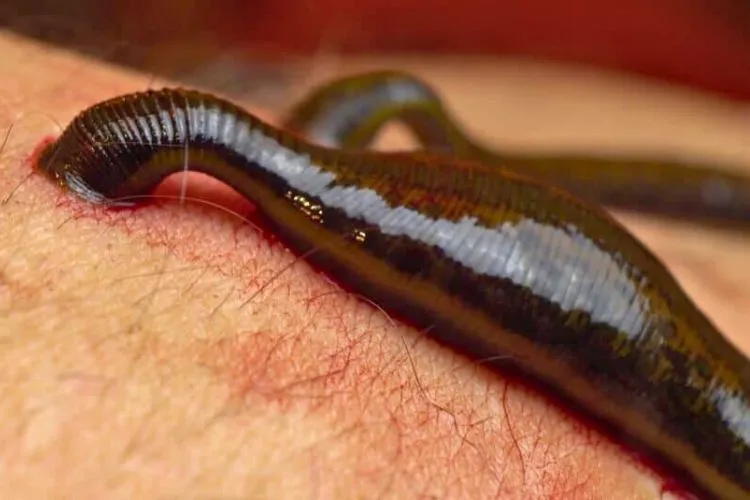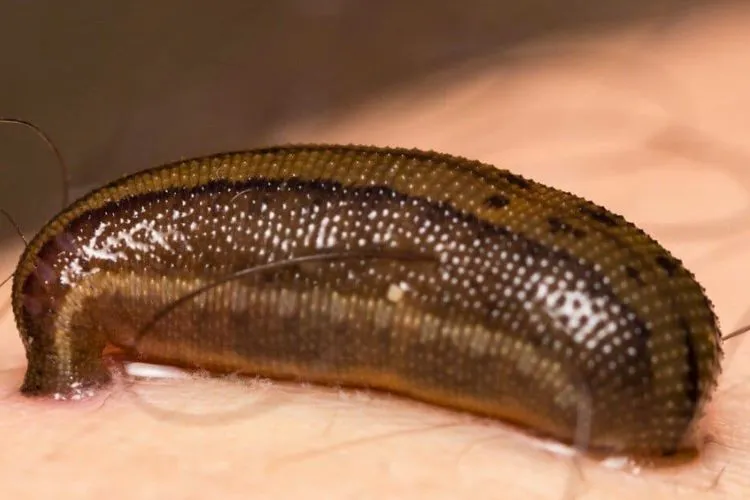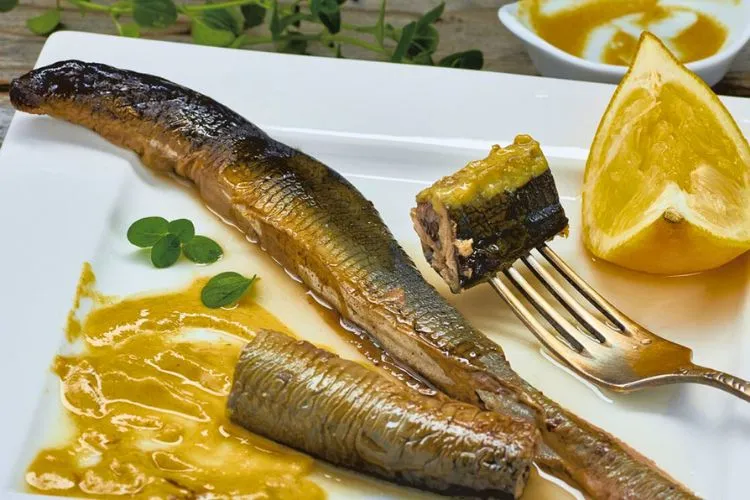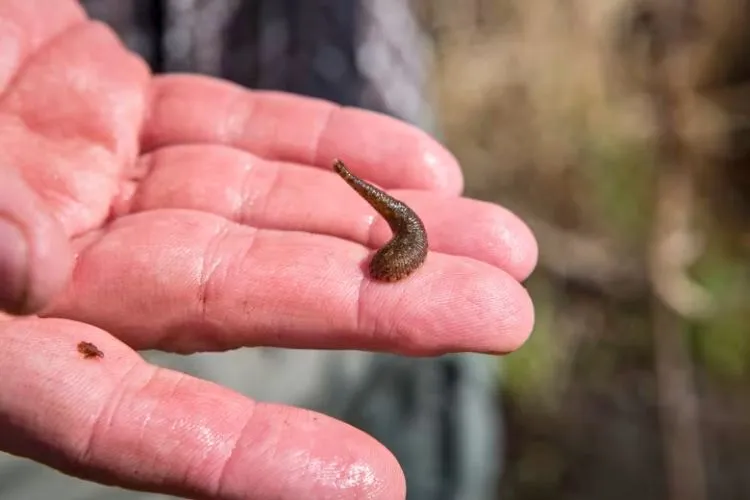Are leeches edible? This article peels back layers of curiosity surrounding this often-unconsidered question. Known for their use in medicine, are they also a source of nutrition?
Our comprehensive guide delves into the possibility and provides valuable insight into the potential dietary role of these blood-sucking creatures.

Get ready for a journey into the world of unlikely food sources.
Are leeches edible?
While leeches have been used in medicine for centuries, consuming them as food is generally not recommended. Leeches are blood-feeding parasites that live in freshwater environments like lakes and streams.
Some cultures have eaten leeches as a delicacy or believed they had medicinal properties, but they provide little nutritional value.
Leeches could potentially carry pathogens or parasites that are harmful if ingested by humans. Though leeches were once thought to have detoxifying properties, there is no scientific evidence that consuming them is beneficial.
Their blood-feeding behavior also means they could potentially transmit blood-borne illnesses if eaten raw.
While leeches are not considered toxic, most health experts advise against intentionally consuming them due to the risks of infection or illness. It is safer to obtain nutrients and minerals from foods that are less likely to carry harmful organisms.
Which country eats leeches?
It’s difficult to substantiate claims that leeches are commonly consumed in China and Korea. While both nations are known for their diverse culinary practices, which may include unique and exotic foods, reliable sources do not typically list leeches as a staple in either Chinese or Korean cuisine.

However, it’s worth mentioning both China and Korea have a history of traditional medicine practices that involve leeches. In Traditional Chinese Medicine (TCM), for example, leeches are sometimes used for their purported blood-thinning properties.
Nevertheless, usage in a medical context is different from dietary consumption and should not be confused as such.
What happens if you eat leeches?
Eating leeches, particularly when they’re raw, is generally considered unsafe and unpleasant. Crushing their bodies in the mouth can result in a release of blood, possibly leading to nausea, gagging, and vomiting.
When swallowed, leeches can cause a range of complications such as difficulty in swallowing, sore throat, vomiting blood, a feeling of suffocation or shortness of breath, and harsh or raspy breathing.
If there is an absolute need to consume them, perhaps due to survival circumstances, they should be prepared very carefully. This preparation includes meticulous cleaning and thorough cooking, preferably by boiling or frying.
However, the consumption of leeches emphasizes the potential dangers as leeches are known to attach themselves to various areas in the human body, making them quite difficult to remove.
Therefore, it is crucial to note that these potential hazards significantly outweigh the benefits (if any) of including leeches as a food source, and it is strongly discouraged.
Can you eat cooked leeches?
Yes, you can eat cooked leeches, but it’s essential to understand the risks and appropriate preparation methods to ensure safety. Leeches can be eaten raw, but it’s highly discouraged as it may result in various health risks.
To avoid the risks associated with consuming leeches, it is recommended to cook them first.
The best way to eat leeches is to grind them into a paste and fry them in a little oil or butter. This cooking method not only helps to eliminate bacteria but also ensures that any unchewed leeches are deceased before ingestion.
When preparing leeches, be aware of the potential risks and precautions:

- Bacteria: Leeches may carry bacteria on their outer surface or inside their digestive tract. Thorough cooking is necessary to kill the bacteria, and ensure they are safe to eat.
- Unpleasant taste: While leeches may provide a source of nutrition in survival situations, their taste and texture may not be appealing. As a result, consuming leeches may not be a pleasurable experience.
Note that the consumption of leeches should ideally be reserved for survival situations where other options are scarce. In a non-survival setting, it would be wise to seek alternative sources of food given the potential risks and unpleasant taste of leeches.
Can eating leeches kill you?
Yes, it is potentially possible for eating leeches to cause harm, or in extreme cases, death, due to health-related risks associated with their consumption. Let’s detail the reasons why:

- Presence of harmful bacteria: Leeches are known to carry harmful bacteria in their gut, like ‘Aeromonas hydrophila.’ This harmful bacterium can cause gastroenteritis, sepsis, and other infections, especially in individuals with a compromised immune system.
- Parasites, viruses, and bacteria: Leeches contain parasites, viruses, and bacteria from their previous blood sources. These organisms can survive inside the leech’s digestive tract and may be transmitted to humans upon consumption, posing health risks.
The possible health outcomes from eating leeches are not trivial. If individuals are infected with harmful bacteria, viruses or parasites, symptoms can range from mild (such as an upset stomach or diarrhea) to severe (including systemic infections), which in some cases, might be fatal.
So, while technically not poisonous or venomous, the risks inherent in eating leeches—cooked or not—could potentially lead to serious health concerns, and in severe cases, could be life-threatening.
Care must be taken to comprehend the potential danger and unsafety of ingesting leeches. If absolutely necessary, it’s crucial that the leeches be cooked thoroughly to kill off harmful bacteria and parasites.
It is strongly advised to avoid consuming leeches unless it is absolutely necessary for survival, and even then, it should only be done with understanding and acknowledgment of the potential risks.
How do you eat leeches?
Eating leeches may not be a traditional choice, but it’s sometimes considered in survival situations or for medicinal properties. Leeches could serve as a potentially decent source of protein and other nutrients.
You can safely prepare leeches by first grinding them into a paste. Following this, they can be fried in a little oil or butter. It’s essential to note that not all leeches are deemed edible.
While some people might find the idea of consuming leeches repulsive, desperate scenarios or the need for survival could nudge people to face their squeamishness and consume such unlikely food sources.
Conclusion:
While leeches technically can be eaten, especially when cooked thoroughly, it’s generally advised against due to potential health risks associated with bacteria and parasite transmission.
Ultimately, the consumption of leeches should be reserved for survival situations. Even then, risks and benefits should be carefully weighed.
Given the potential dangers, it’s best to consider edible leeches as a last resort when no safer food options are available.


